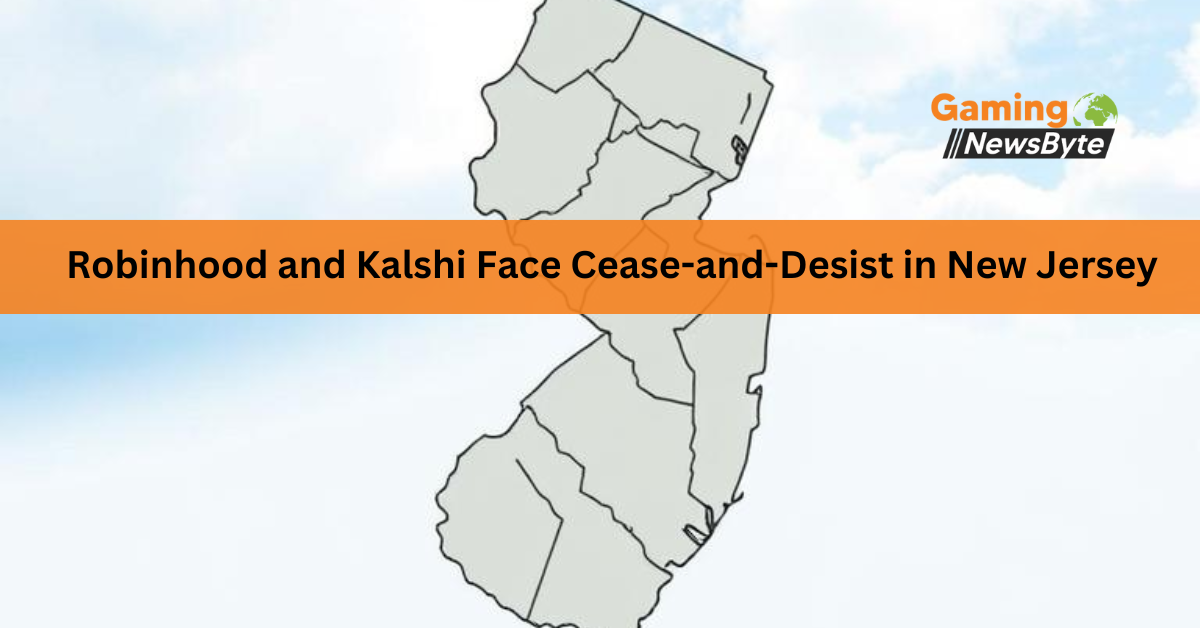Now Reading: Robinhood and Kalshi Face Cease-and-Desist in New Jersey
-
01
Robinhood and Kalshi Face Cease-and-Desist in New Jersey
Robinhood and Kalshi Face Cease-and-Desist in New Jersey

The New Jersey Division of Gaming Enforcement (NJDGE) has taken regulatory action against Robinhood Markets (NASDAQ: HOOD) and its partner Kalshi by issuing cease-and-desist letters that instruct the companies to stop offering event contracts related to the NCAA basketball tournaments. This decision comes at a critical time, just days before one of the biggest weekends for college basketball betting and approximately a week and a half after Robinhood announced its collaboration with Kalshi to provide “yes” and “no” contracts on March Madness games.
In her correspondence to Robinhood CEO Vlad Tenev and Kalshi CEO Tarek Mansour, NJDGE Interim Chair Mary Jo Flaherty noted that the NCAA Tournament event contracts violate the New Jersey Sports Wagering Act. She specifically pointed out that Kalshi is providing unauthorized sports wagering to New Jersey residents on college sporting events occurring within the state, which is against the New Jersey Constitution. Flaherty emphasized, “That constitutional provision mandates that ‘wagering shall not be permitted on a college sport or athletic event that takes place in New Jersey or on a sport or athletic event in which any New Jersey college team participates regardless of where the event takes place.’” This regulation is particularly relevant this week as the Prudential Center in Newark is hosting East Regional games. Kalshi and Robinhood must respond to the NJDGE in writing by midnight tonight.
This regulatory scrutiny is not new for Robinhood and Kalshi, as they have faced similar challenges in other states. Earlier this week, Massachusetts Secretary of State William Galvin announced an inquiry into the companies’ NCAA Tournament contracts, describing Robinhood’s offering as gimmicky and suggesting that these contracts serve to distract market participants from sound investing principles. Additionally, the Nevada Gaming Control Board (NGCB) instructed Kalshi to halt its operations in that state. Although this action was not related to college basketball contracts, it pertained to Kalshi’s overall suite of derivatives, including those tied to elections. Nevada regulators have since granted the company an extension but clarified that event contracts of any type must be approved by the Nevada Gaming Commission (NGC) to be legal.
Read also: NPR Report on Problem Gambling Identifies Gaps in Support Resources
Given that Nevada and New Jersey are among the largest sports wagering markets in the U.S., the regulatory actions taken in these states against Kalshi and Robinhood seem aimed at protecting traditional sportsbook operators. Furthermore, Washington State may be the next to target firms offering event contracts. An attorney for the Washington State Gambling Commission stated, “We are looking into these types of ‘predictions markets’ as a whole and are unable to discuss the specifics of any active investigations further.” Washington currently permits sports wagering exclusively at tribal casinos.















